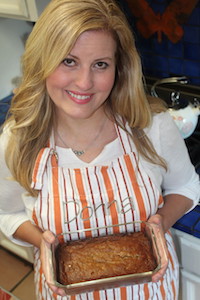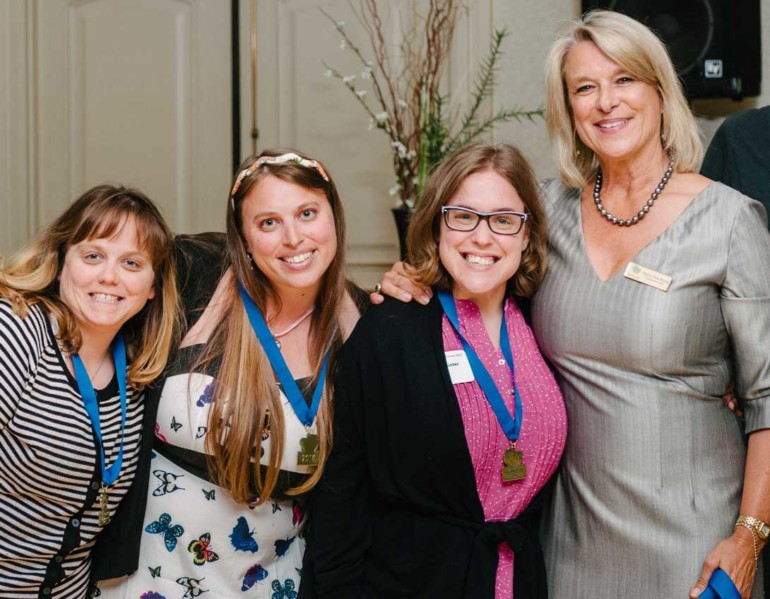When she was 16, Nancy Dow Moody first experienced the deep satisfaction that comes with volunteer work when she signed up to help with a Special Olympics event. Later, she felt the draw again when she helped out at an institution in Massachusetts for children with developmental disabilities. She fell in love with the kids, and continued to work at the school during college for her practicum. It was when she was hired to direct the first program for children with multiple disabilities at the Perkins School for the Blind that her nonprofit career solidified.
Now an industry veteran with more than 35 years in non-profit work under her belt, Moody is at the helm of Lifehouse, a Marin-based agency that has been providing compassionate support to improve the quality of life for people with developmental disabilities since 1954.
We spoke with Moody about her work with Lifehouse and how the organization has been able to changed the lives of others.
How long you have been using your work as a way to create positive social impact?
At the beginning of my career, I found that I enjoyed working with children with developmental disabilities in Massachusetts, but was disappointed in the care at the state institutions. I quickly realized that I wanted to work in the community, fostering independence and integration. I was so excited to be paid to do what I already loved!
After I moved to California, I began my work at Lifehouse in 1992. Lifehouse shared my personal belief that health and safety is only the beginning to fulfilling lives for individuals with developmental disabilities. At Lifehouse, we believe that these people deserve to be valued and included in our community. Just like everyone, they should have a safe place to live, friends, respect and meaning in their lives.
What would you like the public to know about the people your organization serves?
People with developmental disabilities are often prone to poverty, loneliness, unemployment and separation from the community at large. Affordable housing is a critical need, and we meet that need by providing it for 60 of these individuals. Others live in shared housing or have a Section 8 voucher through Marin Housing Authority to supplement housing costs.
Tell us about the kind of services that Lifehouse provides to Marin.
Lifehouse started with a group of parents in 1954 who wanted a preschool program for their children with disabilities, but were unable to access education services. They started their own preschool, in partnership with Dominican University.
Today, Lifehouse provides services to over 300 individuals with developmental disabilities. We’ve developed a comprehensive continuum of residential services supporting adults ranging from a few hours each week to around-the-clock support. We founded a teen recreation program in Marin more than 10 years ago; it now also serves young people in Sonoma County as well. We currently serve over 50 people with autism in our community and those numbers are growing. Many of our staff have been trained in the TEACCH method (Treatment and Education of Autistic and Communication Handicapped Children).
I am proud to say that in 2018, Lifehouse came full circle by implementing an inclusive preschool, called Great Expectations, in collaboration with both the Marin Office of Education and Dominican University. The first of its kind, the school welcomes both children with and without disabilities. Children with disabilities show greater academic and social growth when they are in a welcoming, inclusive environment. Children without disabilities are shown to gain leadership skills, compassion, understanding and the value of diversity. By providing a preschool for children of all abilities to learn and play together, we can teach children at a young age that there is positivity in differences.
What’s next for Lifehouse?
Staying true to our mission of enhancing the quality of life and promoting independence for the people we serve. Our new Adventures in Technology program focuses on adapting mainstream technology for people with developmental disabilities with day-to-day activities and overall personal growth. We are fine-tuning all the intuitive and user-friendly features that technology has to offer, and adapting it to fit the needs of people we serve so that they can enjoy their new tech adventure and improve their communication and independence skills. We set up one of our music-loving members, who has cerebral palsy, spastic quadriplegia and other challenges, with a specialized iPad and an oversized keyboard, including a key guard to guide the finger and a switch to operate. He is able to listen to his own music on the iPad, independently use Skype to connect with friends and family, and use YouTube to follow his interests.
Do you have any stories that illustrate how your work has made a positive impact?
We have a young woman served by Lifehouse who lives in one of our affordable homes in Marin. In the past, she was bullied in school and acted out behaviorally. She now lives with three friends and has a full-time job in the community. She recently visited me on her day off and asked if there was a way that we can organize a group to travel to Europe on vacation. Having choices and being in control of your life can make such a difference!
Is there anything else you’d like to share?
Our organization has tripled in size in the past eight years, enabling us to assist more individuals to live in and be a part of their community and lead meaningful lives. This means that we need to raise even more money to close the gap in what we get paid by the state for services and what it costs to provide those services. In 2019, Lifehouse will be celebrating 65 years of service to our community. We hope that everyone in the community will help us celebrate this incredible milestone by joining us on April 13, 2019 at the annual Great Chefs & Wineries event, held at The Peacock Gap Clubhouse in San Rafael.

A freelance writer in Marin who writes about family, kids and parenting, Glass is the mother to one son, one dog and a hamster named Miss Geri. When she’s not writing, trekking up steep hills in Marin or driving her kid to sports practice, she and her family spend time in their tiny cabin in Lake Tahoe. She avidly supports the California Academy of Sciences, a world class science museum and research institution, and the Institute on Aging which provides much needed services to Bay Area seniors and disabled adults. Glass is obsessed with baking the perfect loaf of banana bread, something she makes so often she no longer needs to look at a recipe card.


